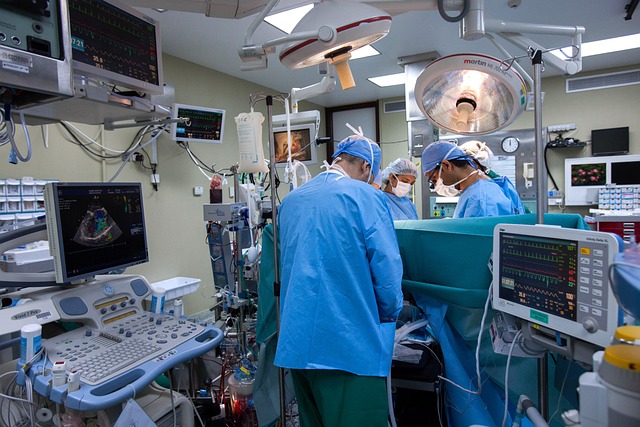Egg donation provides hope for fertility challenges, particularly after ovarian cystectomy, offering diverse pregnancy options. It involves complex financial planning, including medical exams, screening tests, treatment fees, legal documents, and administrative costs. Expenses vary based on clinic policies and case complexity, with age or health issues potentially necessitating genetic testing or extra scans. Understanding these financial implications is crucial for making informed decisions about pregnancy options after ovarian cystectomy. Insurance coverage, financial aid programs, and grants can help alleviate the financial burden, ensuring donors are fully prepared to contribute through egg donation.
“Exploring your options for becoming a parent? Egg donation, a compassionate path to conception, comes with unique financial considerations. This article guides you through the intricate web of costs and planning associated with egg donation post-ovarian cystectomy. We break down medical expenses, from procedure to recovery, and uncover non-medical costs to ensure a comprehensive understanding. Additionally, learn about insurance and financial aid options tailored to this process, offering a clear view of your financial obligations when considering pregnancy alternatives.”
Understanding Egg Donation: A Summary of Costs and Financial Planning
Egg donation is a complex process that offers hope for individuals and couples facing fertility challenges, including those considering pregnancy options after ovarian cystectomy. The financial planning aspect is crucial as it involves understanding a range of associated costs. These include medical examinations, screening tests, and treatment fees for both the donor and recipient. Legal and administrative expenses, such as contracts and consent forms, also contribute to the overall cost.
Additionally, potential donors should account for time off work, travel arrangements, and any emotional support required during the donation journey. While the financial burden can be significant, many countries have regulatory frameworks in place to ensure fair compensation for egg donors. This enables individuals to make informed decisions, considering both the personal and monetary implications of donating eggs, thereby fostering a safe and ethical environment for all involved parties.
Medical Expenses Associated with Egg Donation After Ovarian Cystectomy
After ovarian cystectomy, one of the key considerations for individuals exploring egg donation is the potential medical expenses involved in the process. This includes various tests and procedures to assess fertility and ensure the safety of both the donor and the recipient. These costs can vary widely depending on the clinic’s policies and the complexity of the case.
The procedure itself, along with subsequent follow-up appointments, can incur significant fees. Additionally, advanced age or underlying health conditions may require further evaluations, such as genetic testing or additional scans, adding to the overall expense. Understanding these costs is essential when considering different pregnancy options after ovarian cystectomy, ensuring that potential donors are fully informed about the financial commitment involved in this act of generosity.
Non-Medical Costs to Consider for Potential Donors
Egg donation, a generous act that can open up various pregnancy options for prospective parents, comes with several financial considerations beyond medical expenses. Potential donors should account for non-medical costs that are integral to the process. One significant aspect is the time commitment involved; screening processes and medical procedures often require multiple appointments, which can accumulate travel and accommodation charges. Additionally, there might be legal fees associated with signing donor agreements and ensuring compliance with regulations, contributing to the overall financial burden.
The cost of fertility treatments, such as ovarian cystectomy, should also be factored in, especially for donors who may have pre-existing medical conditions. This procedure, aimed at treating ovarian cysts, can be a necessary step before donation, impacting financial plans. Understanding the potential outlay for these non-medical aspects is crucial for donors to make informed decisions regarding their time and resources, ensuring they are fully prepared for the journey of egg donation.
Navigating Insurance and Financial Aid Options for Egg Donation
Navigating Insurance and Financial Aid Options for Egg Donation
When considering egg donation, understanding the financial landscape is crucial. One of the initial steps involves exploring insurance coverage and available financial aid options. Many individuals wonder about the possibilities after undergoing ovarian cystectomy, seeking pregnancy alternatives. Luckily, several resources can help offset the costs associated with this process. Insurance plans may cover a portion of the procedures, and it’s essential to review your policy carefully to understand these benefits. Some providers even offer specialized coverage for fertility treatments, including egg donation.
Financial aid programs and grants dedicated to assisting individuals with reproductive health issues could also be viable options. These initiatives often aim to make advanced medical procedures more accessible, ensuring that costs don’t deter those seeking pregnancy alternatives after cystectomy. By exploring these avenues, prospective donors can take a significant step toward affording the process, ultimately contributing to their well-being and the lives they hope to touch through egg donation.
In considering egg donation, understanding both the medical and non-medical costs involved—including those stemming from ovarian cystectomy—is crucial. This article has explored financial planning strategies, navigating insurance options, and aid availability to help prospective donors make informed decisions about this life-changing process. By weighing these factors, individuals can explore sustainable pregnancy options after ovarian cystectomy while ensuring a financially secure journey.
